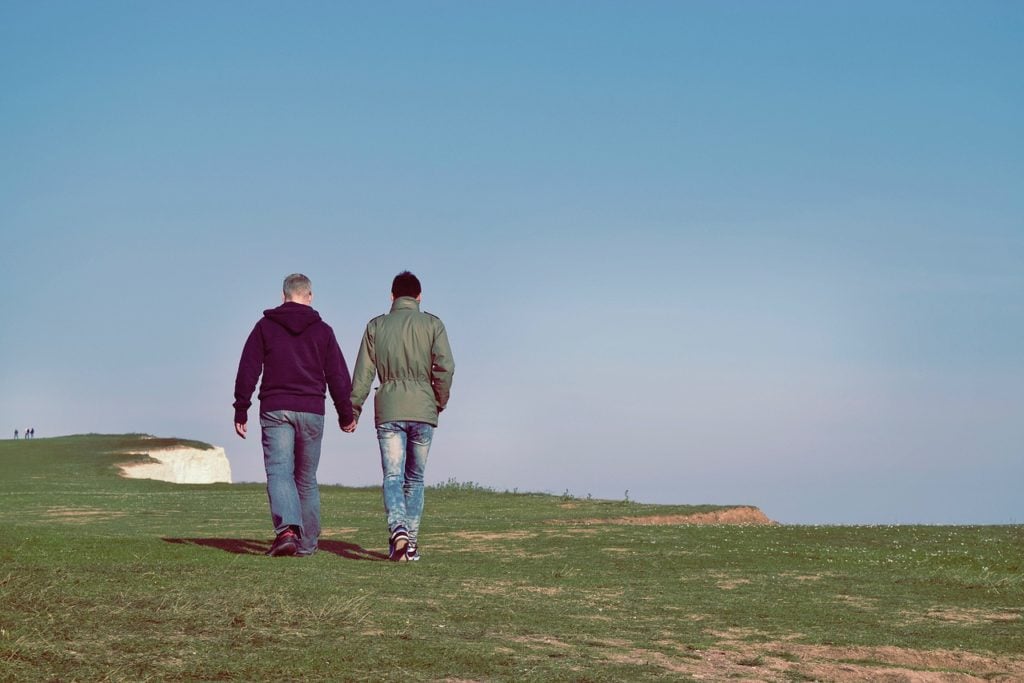Appeals Court Rules Religion-Based Discrimination Constitutionally Protected; Couple’s Refuse to Take Photos of Same-Sex Wedding Protected by First Amendment
WASHINGTON, D.C. (August 23, 2019) – A federal appeals courts has ruled that a St. Cloud couple who operate a videography business have the First Amendment right to refuse to film same-sex weddings based upon their religious opposition to such ceremonies, although a dissenting judge suggested that “nothing stops a business owner from using today’s decision to justify new forms of discrimination tomorrow.”
Q2 hedge fund letters, conference, scoops etc
But there is a simple way to protect religious rights without permitting discrimination against LGBTQ people - and one which avoids having to decide whether First Amendment protection also extends to floral arrangements, banquet displays, bar tending, etc. for same-sex weddings - notes public interest law professor John Banzhaf.
The U.S. Supreme Court's ruling in favor of a Colorado baker who refused to bake a cake for a same-sex wedding had been predicted by Banzhaf, who had also suggested a compromise result similar to the recent ones in Kentucky and in Colorado which balanced the two apparently competing interests.
Kentucky case
The Kentucky court struck an interesting balance between the free speech and religious freedom rights of businesses which oppose messages based upon their content, and gay people who insist upon being served by a business regardless of their sexual orientation.
It follows a legal analysis similar to that originally proposed by Banzhaf, who suggested that anti-discrimination statutes prevent discrimination based upon the characteristics of a potential customer (e.g., being gay), but not upon a refusal to send a message related to that characteristic (e.g., preparing a same-sex wedding cake).
Kentucky's Court of Appeals held that a t-shirt firm which refused to print t-shirts promoting a gay pride festival did not discriminate against gays, drawing a distinction between refusing to serve customers who are gay, and refusing to print shirts which support gay activities: "the 'service' [defendant] HOO offers is the promotion of messages. The 'conduct' HOO chose not to promote was pure speech."
Same-sex wedding case in Kentucky vs Colorada
This simple distinction is also illustrated by two decisions involving bakeries, rather than wedding pictures.. In the first, the Colorado Civil Rights Division ruled that a cake shop could not refuse to make a wedding cake for a gay couple, calling it discriminatory, because its refusal was based upon the sexual orientation of the customers.
However, when a man ordered cakes with writing a Denver bakery considered derogatory towards gays, its refusal to provide the cakes was upheld because the bakery would refuse to provide a cake with that language to any potential customer - gay or straight, Christian or atheist, etc., and for any purpose.
Although the customer claimed that the refusal to provide a cake with this message was "demeaning to his beliefs," the agency said the owner could refuse to put a message on cakes which included "derogatory language and imagery," provided it would do so for all customers.
Kentucky business argument against same-sex wedding cake
In the Kentucky case, although the business accepts and serves all customers, the messages the company is willing to print are "limited by the moral compass of its owners," and it refuses "any order that would endorse positions that conflict with the convictions of the ownership."
This is a clear and simple distinction between the customer and the message he wishes to send. To refuse to sell any t-shirt to a person simply because he is gay would violate the statute, whereas refusing to print a t-shirt which promote a gay lifestyle or activities, for anyone regardless of sexual orientation, is not illegal discrimination.
The court noted that agency's analysis (which it reversed) - which asks whether the message was discriminatory - would lead to "absurd" results: for example, "a man who requests t-shirts stating, 'I support equal treatment for women,' could complain of gender discrimination if HOO refused to print the t-shirts because it disagreed with that message."
Same-sex wedding cake vs swastika
Similarly, Banzhaf's published analysis had suggested that a baker who refused to bake a swastika-shaped cake for a white supremacist group would not be guilty of illegally discriminating on the basis of race if he had a policy against baking a cake in the shape of a swastika, whether it is ordered by a German Nazi sympathizer, a racist fraternity, a Jewish student seeking to "take back" the hated symbol (similar to a recent situation at GWU), an insensitive person who wanted it as a joke, etc.
So, under this simple principle, companies which provide video records, floral arrangements, banquet displays, bar tending, etc. for weddings could refuse to provide them for same sex weddings - without any need to determine their expressive content - if the refusal were based upon the type of event rather than the sexual preferences of the customer.
In other words, if the video company refused to tape any same-sex wedding even if the order were placed by the groom's heterosexual mother or fraternity brother, the refusal would be legal because it is not based upon the sexual preferences of the customer - which is all that the statute expressly prohibits, argues Banzhaf.













